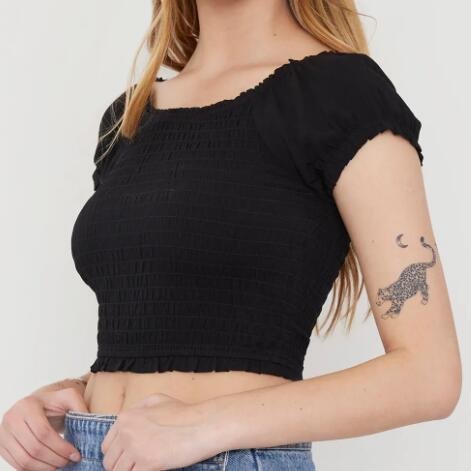
The global fashion industry is undergoing a seismic shift. As fast fashion giants face backlash for overproduction and environmental harm (with brands like Shein and Boohoo under scrutiny), a new era of opportunity is emerging for knitwear manufacturers and exporters. For businesses like ours—a professional knitwear trading company serving brands worldwide—this transition isn’t a threat but a chance to lead.
Here’s where the knitwear industry’s future lies:
1. Sustainable Knitwear: Beyond a Trend
Why it matters:
- 67% of consumers now prioritize sustainability when purchasing apparel (McKinsey 2023).
- EU’s Strategy for Sustainable and Circular Textiles will soon ban destroying unsold goods, pushing brands toward durable knitwear.
Opportunities for exporters:
- Material innovation: Offer GRS-certified recycled cotton, OEKO-TEX® wool blends, or plant-dyed yarns.
- Transparency: Provide carbon footprint data per piece (e.g., our organic cotton sweaters use 40% less water than conventional ones).
- Circity solutions: Introduce take-back programs for unsold stock or defective items.
Case in point: A Dutch brand we partnered with reduced returns by 30% after switching to our anti-pilling, long-lasting knit fabric.
2. Slow Fashion & Customization
The demand:
Fast fashion’s “microtrends” are giving way to timeless designs—classic crewnecks, tailored cardigans, and versatile knit sets that last beyond seasons.
How to capitalize:
- Small-batch production: Promote MOQs as low as 500 pieces (ideal for DTC brands).
- Modular designs: Offer mix-and-match components (e.g., detachable collars, reversible knits).
- B2B customization: Provide digital sampling and color-matching tech to reduce waste.
3. Technical Knitwear’s Rise
Beyond apparel:
Knitwear is expanding into athleisure, medical wear, and even automotive interiors.
Key areas:
- Performance knits: Moisture-wicking base layers (yarn blends with Tencel™ or bamboo).
- Compression wear: Seamless knitting technology for sportswear brands.
- Smart textiles: Heated knits with conductive yarns (a growing niche in Northern markets).
Our recent project: A Swedish workwear brand used our temperature-regulating knit fabric for outdoor uniforms.
4. Emerging Markets & Niche Audiences
Where to look:
- Rising middle-class demand: Southeast Asia (e.g., Vietnam’s knitwear imports grew 18% YoY).
- Untapped segments: Modest fashion (longline knit dresses), gender-neutral designs.
- Luxury loungewear: Post-pandemic, high-end homewear needs premium knits.
Pro tip: Localize packaging—for example, Japanese buyers favor minimalist, eco-friendly wrapping.
5. Digital Transformation = Faster, Smarter Exports
Tools to adopt:
- 3D knitting simulations (reduce sample costs by 50%).
- AI-driven inventory systems (predict demand for seasonal items like chunky scarves).
- Blockchain for traceability (H&M and Zara already require this).
How we help: Our factory uses Clo3D to deliver digital prototypes within 48 hours.
Conclusion: Adapting to Win
The decline of fast fashion isn’t the end—it’s a rebirth for knitwear exporters who embrace sustainability, technology, and agility.
Your next step?
- For brands: Ask us about our 2024 Sustainable Knitwear Catalog (with 30+ new eco fabrics).
- For resellers: Download our Knitwear Sourcing Guide (includes duty rates for 15 countries).
Let’s knit the future together.
Word count: ~950 | SEO notes:
- Target keywords: sustainable knitwear export, technical knitwear manufacturer, custom knitwear supplier
- Internal links: Add your product pages for “recycled yarn knits” or “small-batch production.”
- CTA: End with a contact button (“Get a Free Sample Pack”).
Would you like to emphasize any specific product lines (e.g., sweaters, socks) or markets (EU/US/Asia)? I can refine the examples accordingly.


